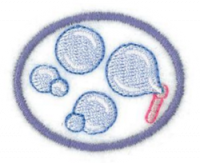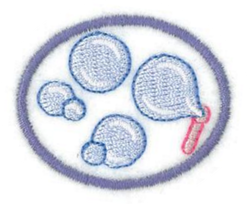Difference between revisions of "AY Honors/Bubbles/Requirements"
From Pathfinder Wiki
Jomegat bot (talk | contribs) (Bot: Automated import of articles *** existing text overwritten ***) |
m (- Category of Honor Requirements) |
||
| Line 125: | Line 125: | ||
<noinclude></translate></noinclude><section end=req8c /></b> | <noinclude></translate></noinclude><section end=req8c /></b> | ||
<section end=Body /> | <section end=Body /> | ||
| − | |||
| − | |||
| − | |||
| − | |||
| − | |||
| − | |||
Revision as of 20:11, 20 July 2022
1. Define the following terms:
- a. Soap Bubble
- b. Hydrophilic
- c. Hydrophobic
- d. Surface Tension
- e. Minimum Energy
- f. Minimum Surface
2. How do the following weather factors affect the life of a bubble and how?
- a. Humidity
- b. Temperature
- c. Wind
- d. Precipitation
3. Make a model or drawing of a soap molecule. Show why the molecule is either Hydrophilic or Hydrophobic.
4. List safety rules about bubble blowing.
5. Surface Tension
- a. Explain what causes surface tension.
- b. Conduct an experiment to determine if soapy water has higher or lower surface tension.
6. Wands:
- a. Explain what types of material work best for the loop of large bubble wands?
- b. Construct a wand to make large bubbles.
7. Components:
- a. What water quality works best for bubbles? What impurities negatively affect bubble quality?
- b. What soaps are best for bubble solution?
- c. What is the purpose of glycerin or corn syrup in a solution?
- d. Learn a formula for a bubble solution and mix a batch of bubble solution.
- e. Evaluate your bubble solution and make a better recipe if necessary.
8. Experiments:
- a. Show what happens when bubbles meet bubbles? How does this illustrate minimal energy and minimal surface?
- b. What causes colors in a bubble? Demonstrate constructive and destructive interference.
- c. What shape are bubbles and why? Do an experiment to illustrate the answer.


